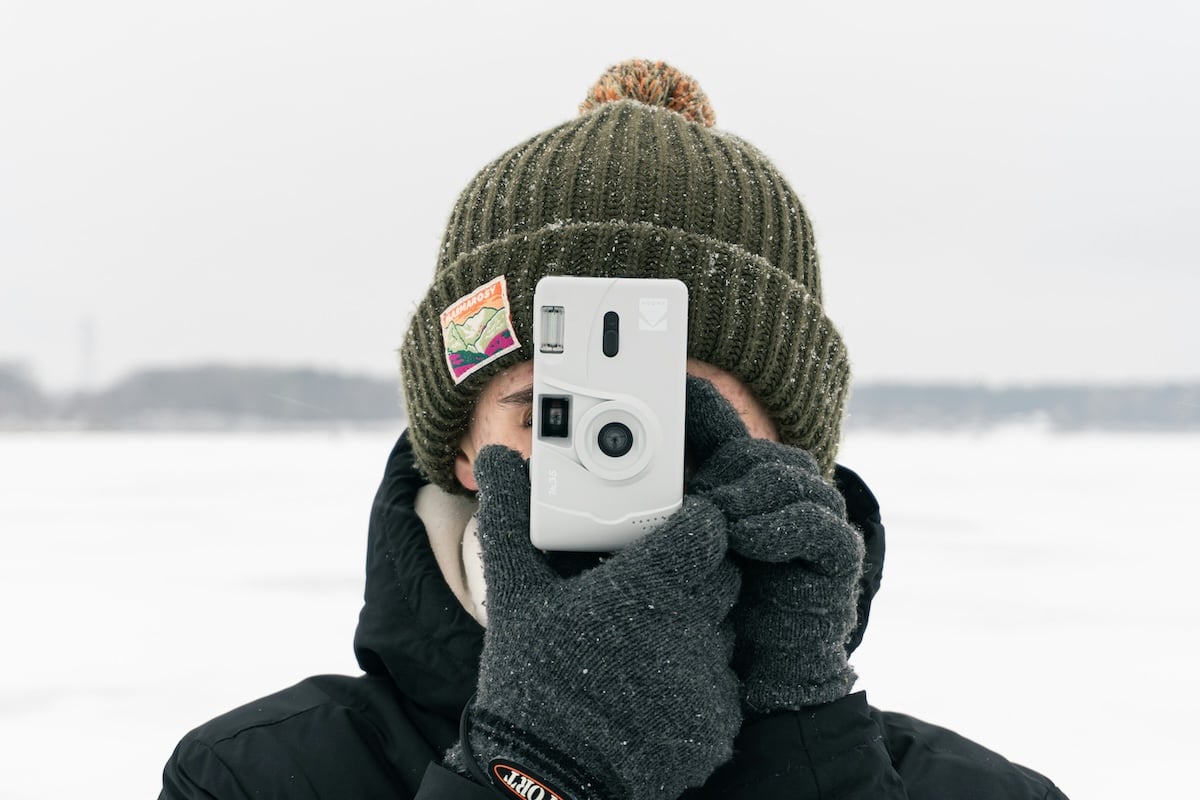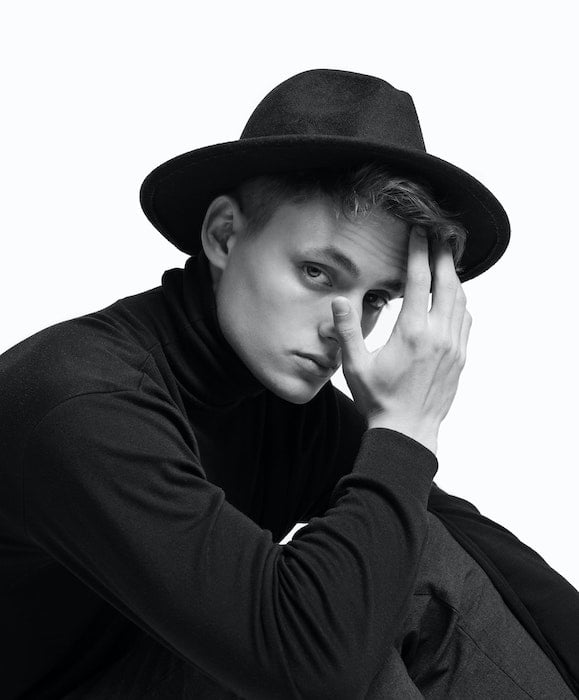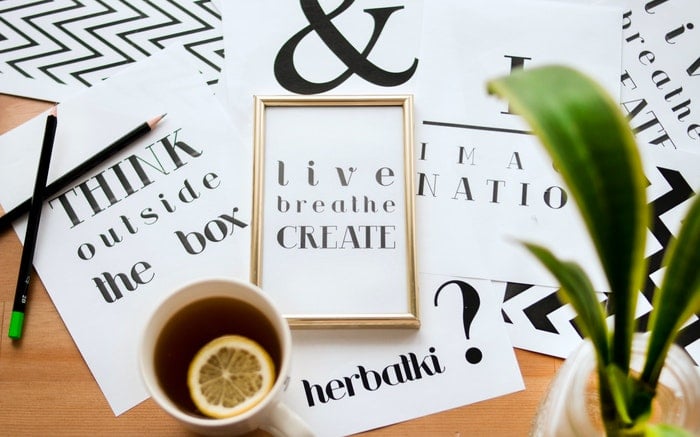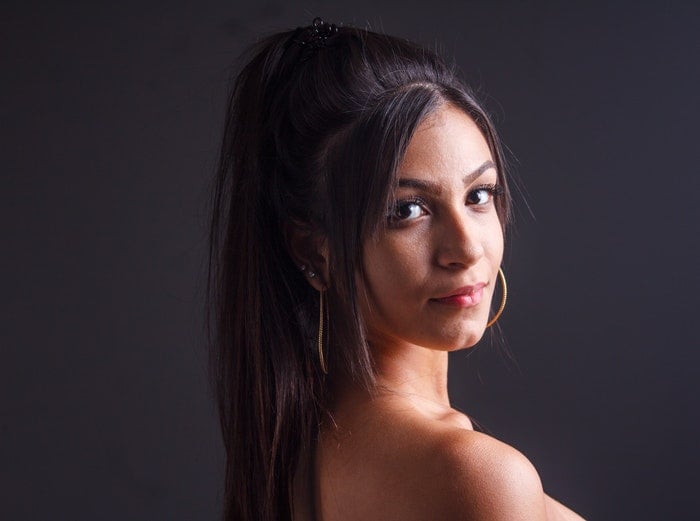When it comes to self-portraits, many photographers focus exclusively on their faces. I’m definitely guilty of this! This isn’t surprising, given the powerful nature of expressions, eyes, and angles. You might be afraid that without these features, a faceless portrait will look dull.
This isn’t true. In fact, faceless portraits are known for their emotional depth, stunning compositions, and outstanding details.
The faceless portrait photography genre has taught me how to tell stories without using expressions, how to appreciate other parts of myself, how to juggle multiple photography skills at once, and more.
I’d like to share a few reasons why you should embrace faceless portrait photography too.
Self-Portrait Photography: Capturing All of You, Including the Faceless Portrait
Faceless portrait photography can have just as much impact as ones that feature strong expressions. All you have to do is appreciate other parts of yourself, like your hands, posture, hair, etc. This, too, is self-portraiture.
When you focus on other parts of yourself, make sure you don’t just photograph them as they are. Use them creatively.
For instance, if you want to photograph your hands, take a panoramic self-portrait of yourself holding something. If you want to emphasise the length of your hair, take a photo of yourself turning away from the camera in your favourite location.
These details will add personality to your work and make your photographs stand out.
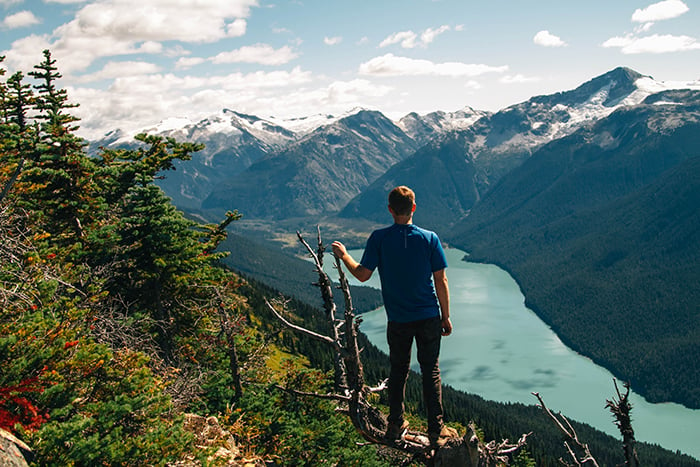
Faceless Self-Portraiture Has Many Sub-Genres
Without facial expressions, your portrait photography will have more room for other elements. Most of the sub-genres that portraiture offers can also be explored in a faceless portrait. Here are a few to experiment with:
- Outdoor self-portraits that create the illusion of anonymous street photography
- Underwater self-portraits in which movements are the main focus
- Macro closeups of body parts like shoulders, hair, and fingers (or even diptychs featuring these parts)
- Conceptual self-portraits highlighting the relationship between humans and their surroundings
- Faceless B&W self-portraits
Oftentimes, we get so used to our favourite genres that we lose our spark. These sub-genres will not only provide you with lots of unique challenges, but also give you a chance to get excited about photography again.
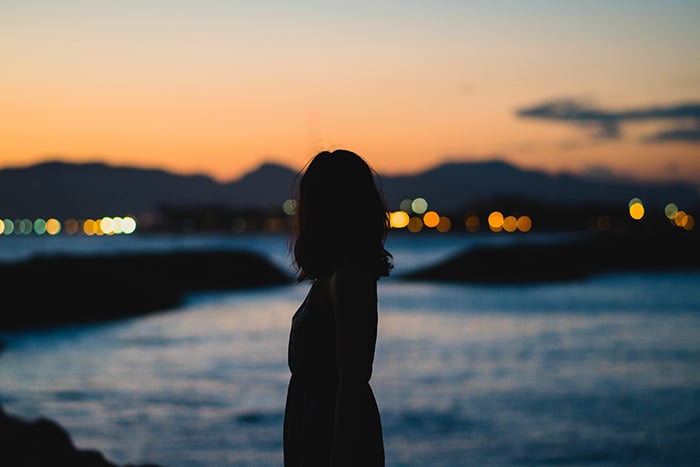
You Can Improve Several Photography Skills at Once
Faceless portraiture demands the use of surroundings, details, and compositions. Without them, your results will look uninteresting. Because of this demand, you have to explore other photography genres, such as the ones mentioned in the list above.
By exploring other genres simultaneously, you’ll quickly strengthen your general photography skills.
A great example of this is Rona Keller, whose faceless portraits are filled with stunning landscapes. To take these photographs, she has to be aware of compositions, details, and backgrounds. This requires a strong knowledge of both landscape and portrait photography.
Every time she takes photos, she strengthens both of these skills. You can do this, too.
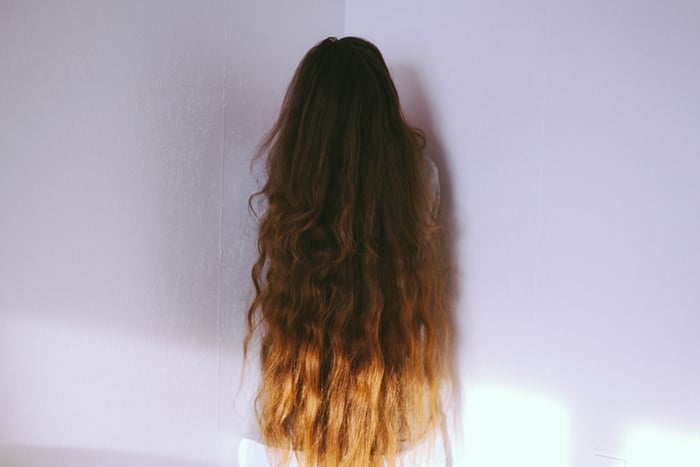
Faceless Portraits Allow You to Focus on Details
Faces have a lot of distracting details. Though this isn’t necessarily a bad thing, it does make other elements look less appealing. Vibrant eye colors, powerful expressions, and strong facial features will all distract you from other, subtler details in a self-portrait.
Remove them from your photographs and you’ll put the spotlight on those subtle details. And in that spotlight, they will look extraordinary.
Look for details that you usually don’t pay attention to. A few examples are clothing textures, body movements, and posture. Use them to tell a different story about yourself (or a person you’re portraying). By doing this, you’ll introduce yourself to a whole new world of fascinating details.
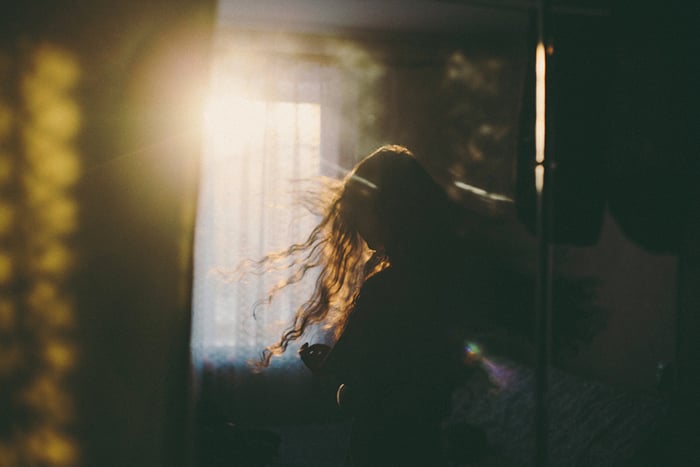
This self-portrait was taken in a small room during golden hour. I took it through a mirror.
It’s a Great Way to Appreciate Your Surroundings
We often forget to look at our surroundings from a creative standpoint. If we did, we’d find marvellous ideas in the most unexpected places. Our work would bloom because we’d find possibilities everywhere.
It’s never too late to change your attitude toward your surroundings. Stop taking them for granted and start looking for opportunities. You can easily do this through faceless self portrait photography.
Find a beautiful local area and take photos of yourself appreciating it. Take photos in your own home. As you do this, your inspiration will strengthen and all kinds of ideas will come to life.
I highly recommend working on a Faceless Portraits Indoors challenge. All you have to do is take self-portraits in different rooms. Be as creative as you can. Find angles, details, and compositions that stand out to your inner photographer.
This project will quickly teach you how to appreciate the creative potential of simple places.
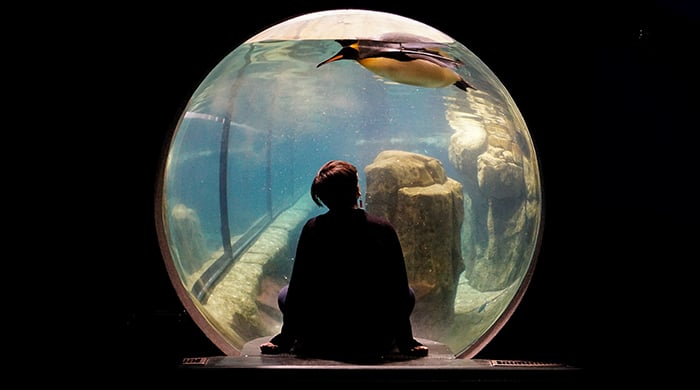
With a Faceless Portrait, You Can Be Anyone
Thanks to faceless portraiture, it’s possible to be the most introverted person in the world and take stunning self-portraits. It’s also possible to transform yourself into anyone without giving away who you really are. Whether you’re shy or simply eager to experiment, this genre delivers.
When it comes to transformations, I like to use wigs. Other photographers invest in costumes, headpieces, props, etc., to express themselves. With the help of these items, they turn into new people and leave their insecurities behind.
Even a mild transformation, like wearing an unusual hat, can boost your confidence and help you take amazing faceless self-portraits.
If you don’t want to invest in extravagant items, use an editing program to make yourself unrecognisable. Faceless portraits are filled with colors and shapes that you can easily manipulate.
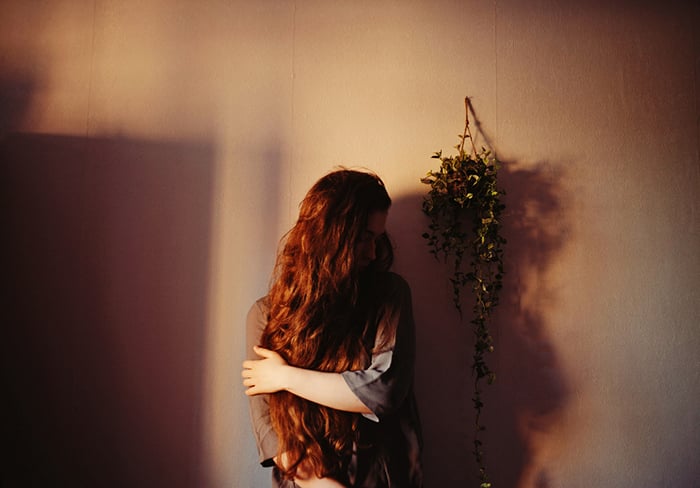
Faceless Portraits Are Relatable
It’s so easy to compare yourself to a model with perfect facial features. It’s easy to lose confidence in your own appearance because of insecurities. There’s always room for comparison and judgement when it comes to faces of any kind.
Why not take a break from them and focus on the true beauty of photography?
When faces aren’t a part of the picture, an entirely new world opens up. With a hidden face, you’re just a person with a great (and usually relatable) story to tell. Even if a few people do end up comparing themselves to your faceless features, most viewers will appreciate the details, compositions, and themes in your work.
With this newfound understanding, you can focus exclusively on the quality of your stories. Make your faceless portraits as emotional as you like, and be confident that they’ll touch many people.
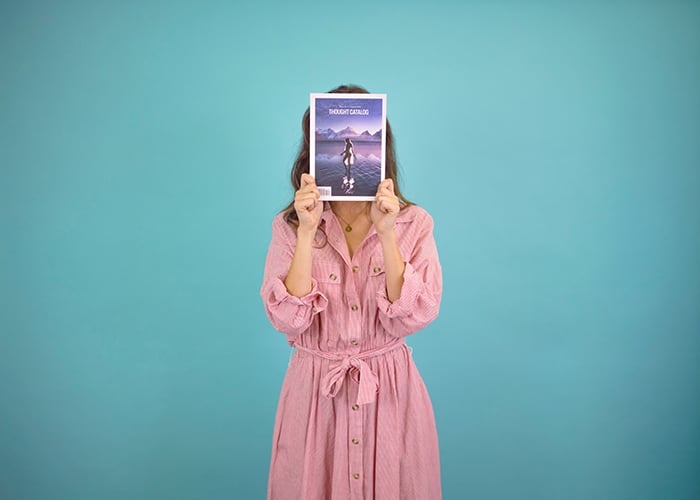
Faceless portraits are also a great way to advertise your own products. If you own a business, would like to relate to your customers, but don’t feel comfortable in front of the camera, just turn to this method! It will help you connect with your followers, show them that you’re imaginative, and add a bright spark of creativity to their feeds.
It’s the Best Way to Show Your Favourite Things
Smiling photos can look a little awkward, especially when you’re trying to show something off. To solve this problem once and for all, simply hide behind the item you’re holding.
Photos like this may not be ideal for portfolios, but they’re great for social media and blog posts. If your photo gets featured in a magazine, take a faceless portrait! If you just released a new product, proudly show it off! You can always be a part of the picture without showing your face.
Alternatively, you can take a photo of your hands holding an item. When I don’t feel like showing my face, I simply crop my photographs. This introduces me to a whole new world of creative photography. Sometimes, the results are so interesting that I use them in my portfolio!
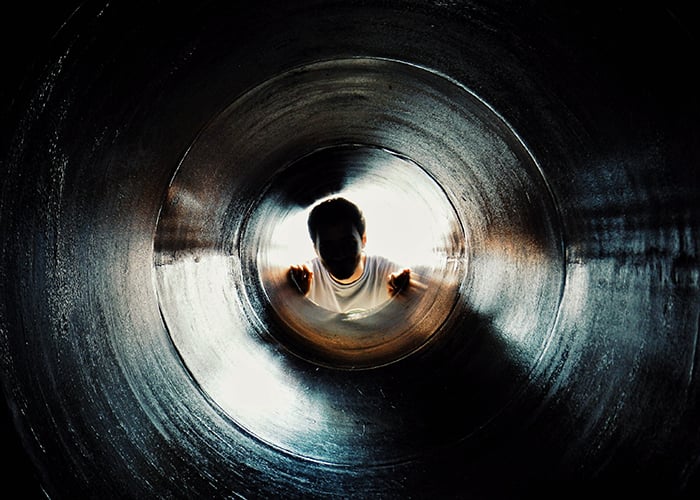
You Don’t Have to Worry About Face Lighting
Some days, you’re just not in the mood for face lighting. Other days, you might feel insecure about your skin. On these days, don’t give up on taking self-portraits.
Just because you’re not in the mood for something doesn’t mean you should force yourself to do it. When self-portraiture seems like an intimidating genre, turn it into something more achievable. Take a break from the pressures of looking good, and embrace faceless portrait photography.
This might seem straightforward, but it’s actually not. When you realise that self-portraiture isn’t something you have to immerse yourself in, you’ll feel more relaxed. This will allow room for more ideas and happiness. These, in turn, will make you a more efficient photographer. You deserve that.
Conclusion
As you can see, faceless portraits are just as special as normal portraits. Thanks to this genre, I’ve become more open-minded, curious, and creative. I’m also more aware of other genres, like landscape and underwater photography.
You, too, can become someone whose portfolio is filled with an exciting mix of genres. All you have to do is take the time to experiment with faceless portraits, appreciate your own surroundings a little more, and tell you story as honestly as possible.
The more you practice, the easier it will get, and the closer to success you’ll be.
For more interesting portrait ideas, check our article on creating high contrast photos inspired by Platon or our tips on taking natural light portraits.
